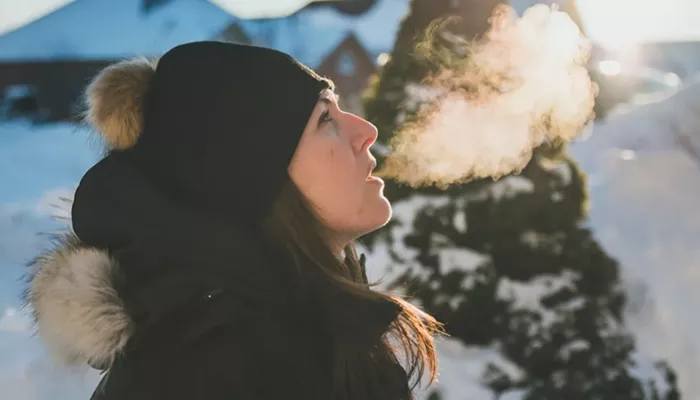A chilling Arctic blast has descended on the UK, bringing a significant drop in temperatures and widespread snowfall across parts of Scotland, with more winter weather on the horizon. As freezing conditions continue into the weekend, a bitter cold snap is expected to trigger “significant snow” and blizzard-like conditions, particularly in northern areas.
Overnight, temperatures plummeted, signaling the onset of a frosty and dangerously cold weekend. With health risks at the forefront, the UK Health Security Agency (UKHSA) has issued amber alerts for all of England, warning of a potential rise in cold-related deaths. Local NHS services are advising residents, particularly those with health conditions or the elderly, to stay indoors during the early morning and late evening hours when frost levels are highest.
The cold front follows a series of intense storms that brought strong winds and heavy rain, causing flooding in the north-west of England. While many flood warnings remain in effect, the focus has now shifted to the continued winter weather and its potential impact on public health.
Health experts have issued urgent warnings as cold conditions settle over the UK. The amber health alerts cover all of England, with concerns rising about the elderly and vulnerable individuals. According to the UKHSA, extreme temperatures can lead to cold-related illnesses such as hypothermia and frostbite, and can exacerbate conditions like heart disease or respiratory problems.
NHS services, such as NHS Black Country’s integrated care board, are urging the public to “avoid going out early when the frost is thick or late at night when it’s dark.” Vulnerable individuals, including the elderly, should take extra precautions, such as ensuring they are checked on by friends, family, or carers, and avoiding unnecessary exposure to the elements.
The weather warnings are in full effect as snow and ice are expected to impact most of England, Wales, and Scotland over the weekend. Yellow warnings for snow and ice are in place, with some regions facing a heightened risk of blizzard-like conditions, particularly in the Highlands and the north-east of Scotland. Photos sent to BBC Weather Watchers show snow already blanketing parts of the country, creating picturesque yet treacherous conditions.
Saturday is predicted to be the coldest day, with temperatures struggling to rise above freezing. Winds will make it feel even colder, particularly in exposed areas. Forecasters are predicting temperatures between -1°C and 2°C, with a risk of significant snowfall in certain regions. Local councils and emergency services are on high alert, preparing for potential disruptions to travel and daily life.
After a period of unseasonably mild weather during the festive season, which saw temperatures reach 11°C to 13°C on Christmas Day, the UK now faces a sharp shift to much colder conditions. The wind chill will make it feel even colder, especially for those spending time outdoors.
These colder conditions serve as a stark reminder of the importance of winter heating, particularly for older individuals. Age UK’s director, Caroline Abrahams, has called attention to the government’s decision to limit winter fuel payments, which may exacerbate financial pressures on vulnerable individuals during the coldest months of the year.
As the Arctic blast continues, experts are providing advice on how to stay safe and healthy during extreme cold weather:
Keep warm: Ensure your home is adequately heated, particularly in rooms where you spend a lot of time. Wear layers and thermal clothing to conserve body heat.
Stay indoors: If possible, limit your time outside, especially during the early morning or late evening when temperatures are at their lowest.
Drive safely: For those needing to travel, be aware of icy roads and snowy conditions. Allow extra time for travel and ensure your vehicle is winter-ready.
Check on vulnerable individuals: Reach out to elderly family members, neighbors, and those with health conditions to ensure they are managing the cold safely.
The cold weather has heightened concerns about energy costs. Caroline Abrahams of Age UK has raised alarms about the government’s decision to cut winter fuel payments, urging energy companies to offer more support to those struggling to pay for heating during the cold months.
“The government’s move to limit fuel payments will put older people at risk. Energy companies and local councils need to step up and ensure vulnerable individuals can stay warm,” Abrahams said.
In response, local councils have been advising those in need to reach out for assistance, as there may be support available to help cover the cost of heating and other essential winter needs.
Read more:
- Drinking Water And Health: Does Extra Hydration Offer Significant Benefits?
- Alcohol And Health: The Controversy Behind U.S. Dietary Guidelines And Public Health
- Norovirus Outbreaks On The Rise: CDC Warns Of Increased Risk This Winter


